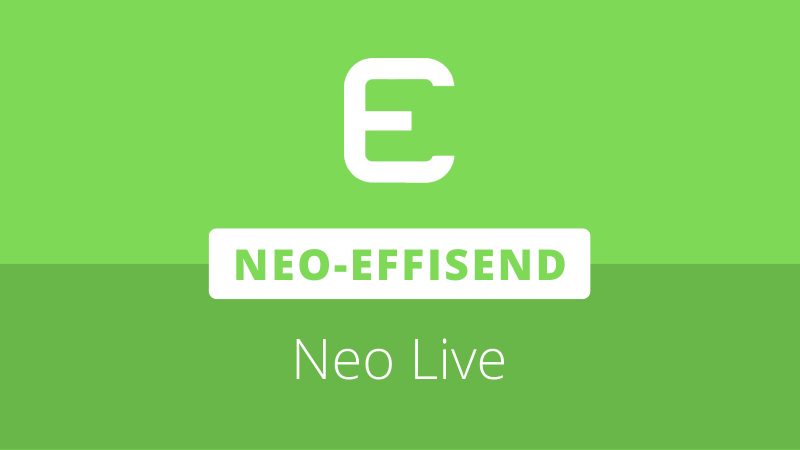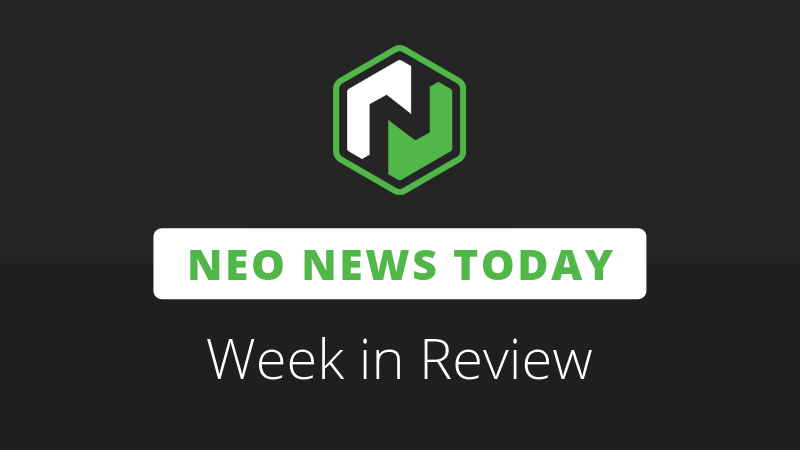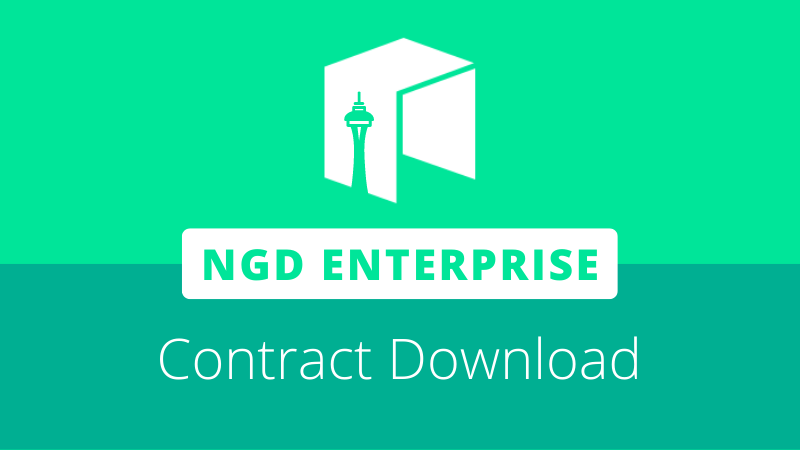
Eduardo Oliver, the CEO of Neo-Effisend, recently joined the Neo Live AMA series to discuss the Neo Polaris Launchpad “Excellence Award” winning project. Participants in the AMA shared rewards from a prize pool comprised of 10 Neo-Effisend NFTs.
In the AMA, Oliver discussed the main purpose of Neo-Effisend, plans for launching a closed-beta of the dApp this year, why its main focus is on Latin America, the potential of adding support for other blockchains, and more.
The full transcript can be found below:
Riley (Neo Telegram admin): Neo-Effisend is a NEO-based mobile dApp and wallet that improves cash-out processes and integrates with Rapyd to improve financial inclusion in Mexico and Latin America.
Eduardo Oliver, aka. Luis, is the of CEO Neo-Effisend.
He’s also an engineer, blockchain specialist, and hobbyist miner that specializes in decentralized computing, IoT, and finance.
Q1: What is the main purpose of Neo-Effisend?
Eduardo: How many unbanked have we banked by the year 2021? Despite having made great progress and having outliers like the country of El Salvador, outside of that the progress is almost null. Most of the same people that are into crypto today have been in for years and are the same elite, educated previously banked ones. It has not reached those who are not. We can say that because our team lives in one of those developing countries that countless projects try to portray as a target for financial inclusion, which is Mexico. I would say then that Neo-Effisend is a tool to try and bank the unbanked.
Q2: What is the market need for your product?
Eduardo: It is important to mention that, according to the World Bank, 65% of Mexican adults do not have any type of bank account, and only 10% save through a financial institution. Additionally, 83% of Mexican adults do not have access to electronic payment systems. These circumstances limit the potential of the sector to place the resources of savers in productive projects that generate economic development and well-being for the population. And crypto is not doing better than the legacy system, most of the users are people like our team: tech-savvy with a certain degree of education and already banked. Approximately 76% of people have a cellphone with an internet connection so that’s a market we can address.
Q3: Why focus on Latin America?
Eduardo: Latin America annually grows as an ecosystem where new startups can be developed. It is important to highlight that several cities in the region are being globally described as competing spaces, sharing levels with such traditionally technological and enterprising cities as New York, London, Singapore, and, of course, Silicon Valley. Over the past years, outstanding ecosystems have been boosted in cities like Mexico City, Santiago, Medellin, Buenos Aires, and São Paulo, with global scope, and buttressed by a business-friendly environment, immense wealth of talent, access to funds, and close relations with universities.
A growing number of foreign companies and investors have focused their eyes on Latin America, willing to explore and conquer new scenarios. According to Startup Genome, the strength of the travel industry and service sector in Mexico City have allowed people to develop a dynamic startup ecosystem that stands out for its talent, diversity, and creativity. Over 600 startups have been registered, as well as a solid network of events and communities designed to support entrepreneurs, such as Techstars Startup Weekend, Hackers and Founders, and Startup Grind, which have helped the ecosystem grow in an organic and sustainable way. Mexico represents 14 percent of the startup ecosystem in the entire region. The city features another key asset: its proximity to the United States, which provides significant market and funds potential. Such giants as Amazon, Google, Twitter, Facebook, and other technology companies are also heavily invested there.
Q4: Will you accept only NEO tokens or will you diversify into other crypto assets?
Eduardo: No, we plan to add support for several other blockchains, but at the moment we will heavily focus on starting with Neo.
Q5: Do you plan on launching the dApp? If so, when?
Eduardo: Yes, probably by October-November this year we will do a closed beta.
Q6: I would like to know about the market for other remittance + crypto/blockchain applications? Are there other companies/teams building remittance apps on top of blockchain in Mexico? Is the demand for apps with cheaper fees growing?
Eduardo: There are quite a number of companies building at the moment for the remittances aspect, but there are very few that are indirectly offering those services, such as Bitso. One other is the Chivo wallet from El Salvador, but as we know that one is heavily centralized and controlled. If we take in mind the elements of a remittance + crypto project, I think that is a huge niche that offers a great opportunity for builders such as ourselves as there are not really applications focused on that in the LATAM ecosystem.
Q7: What are the top priorities for Neo-Effisend this year and what is your plan for the development of this project? What is the main vision and goal of your project? And who are your targeted customers?
Eduardo: Firstly, we would like to polish the contracts we are using and the integration with Rapyd as much as possible. Regarding the application, we would like to test it with real capital, perhaps in Q4 2022. Apart from that, it has gained traction with Rapyd also which is our financial services provider so we will spend most of this year improving the backend on that side. The main vision is to reach unbanked populations in Latin America to improve financial inclusion and our target is heavy phone users in Latin America.
Q8: Is your target only going to be Mexico and Latin America? Do you have any plans for GameFi?
Eduardo: Yes, for now we will just focus on Mexico and Latin America, but in essence, we are focusing on a big chunk of the market in the USA as there are almost 30 million Latin American migrants now residing in the USA. There’s not any GameFi in the books for the moment, sorry. But perhaps in the future, who knows?
Q9: What are your plans after Mexico? When do you plan to launch your products in other countries? And how will you overcome challenges in different nations?
Eduardo: We will first focus on Mexico, but when we grow at a particular rate we will try and launch in Columbia which is a country culturally and legally speaking very similar to Mexico. If we stick to the Spanish-speaking Latin American countries they are still quite similar and their infrastructure is quite easy to understand if you already know one country. Brazil might be a challenge, but that one is still a long way to go. So, in time, we will be ready for it also.
Q10: Why is Neo-Effisend limited to just Mexico and Latin America?
Eduardo: As we explained in one of the previous questions, the Latin American ecosystem is booming with activity on the tech side. But, most importantly for us, we were raised in this ecosystem and we know the kind of products that it needs and might have a market and that is what gives our team an edge.
Note: Some edits have been made for formatting and readability.
The full conversation can be found at the link below:
https://t.me/NEO_EN/246943







About The Author: Dean Jeffs
Dean is a digital project manager who has worked extensively with start ups and agencies in the marketing space. Fascinated by the potential applications of blockchain technology, Dean has a passion for realising the new smart economy.
More posts by Dean Jeffs